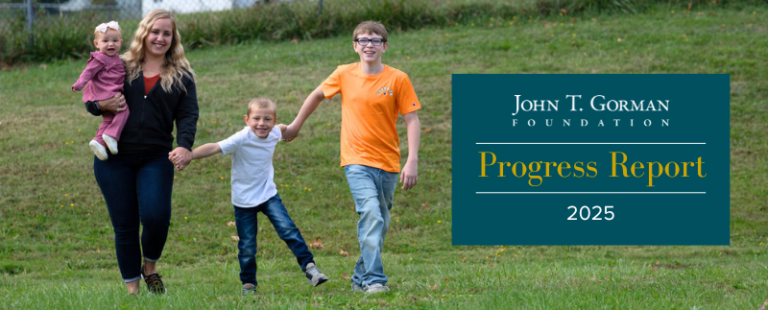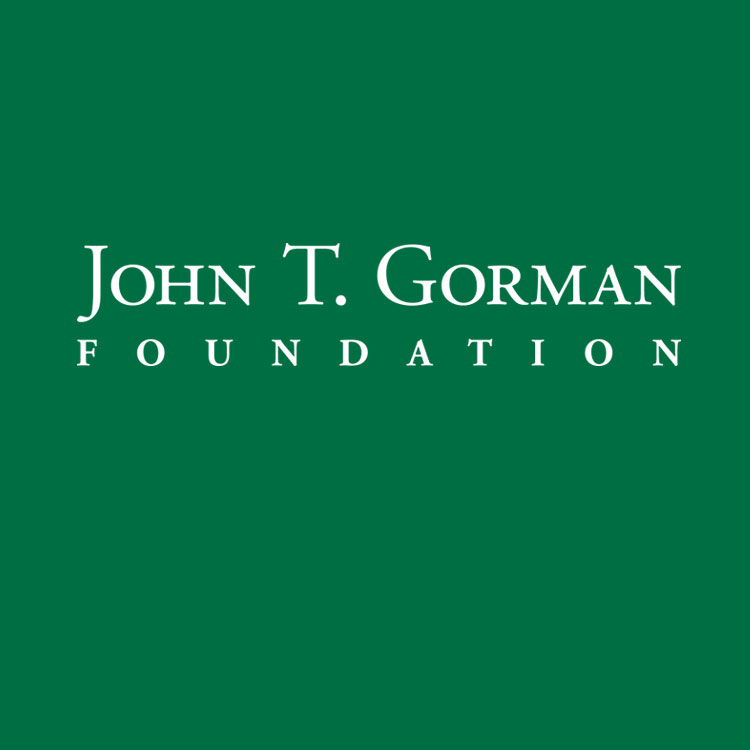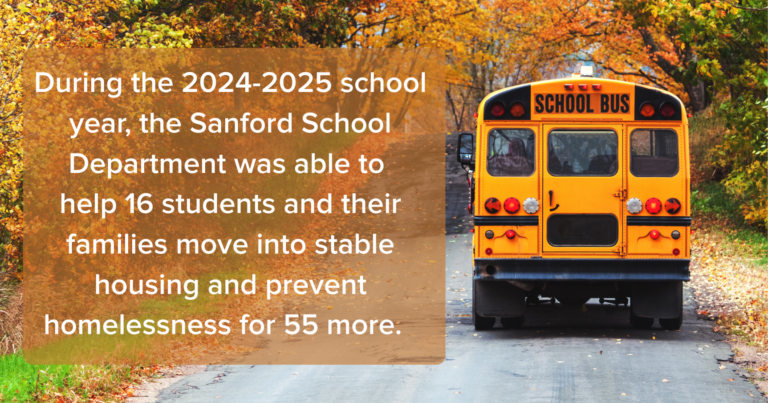
Dr. Monica Barczak has over 15 years of experience advancing two-generation (2Gen) initiatives at the local and federal levels. Her notable work includes the design and implementation of CareerAdvance®, a cutting-edge two-generation initiative to improve educational outcomes for children and their parents at CAP Tulsa. As a Senior Advisor with the Administration for Children and Families, she also led Rural IMPACT, a 10-site two-generation demonstration project coordinated with the White House Rural Council.
With the support of the John T. Gorman Foundation, Dr. Barczak has provided technical assistance to help organizations in Maine strengthen their two-generation practices and recently led a workshop for our partners on measuring whole-family outcomes. We recently spoke with her about key elements of the two-generation approach, its implementation in Maine, and how organizations can advance their work for families amid a shifting policy landscape.
John T. Gorman Foundation: What key elements define the two-generation approach?
Monica Barczak: First is this word ‘approach.’ I really see it as a way of doing business and not as a single program. The second is intentionally designing programs in an integrated way to serve children and their parents or caregivers at the same time. The third is measuring outcomes at three levels –children, their parents, and the whole family.
I think it’s also useful to point out a couple higher-level 2Gen concepts. One is an agency’s recognition that the success of their individual clients is connected to or dependent upon the success of other family members – so when someone comes for services, everyone in that organization sees an opportunity to offer supports to the whole family. The other concept is being rooted in promoting prosperity from one generation to the next. This includes helping families move to economic mobility and the many factors that make it possible.
JTGF: What makes the approach successful in promoting that intergenerational prosperity?
MB: I see two things. On the family side, there is a mutual motivation between parent and child. When children see their parents study, for instance, that modeling motivates them to do their homework and go to class. Parents are also motivated by their children to pursue things like education that they may not have taken on otherwise.
Additionally, when organizations reshape their operations in an integrated 2Gen way, they remove barriers that parents would otherwise have to work through. Anytime you remove friction or barriers for families to participate in services, you’re going to get a better result.
There is no doubt the current climate is really challenging. But even in an environment of reduced budgets, operating by 2Gen principles doesn’t necessarily require dollars.
JTGF: What do you think of how Maine organizations are implementing the two-generation approach?
MB: What’s going on in Maine is incredibly impressive – in particular, the intentionality around building 2Gen capacity. On top of that, there are some very experienced 2Gen practitioners in Maine who are sharing their wisdom and expertise not just with one another but also with agencies that are newer to 2Gen. This kind of peer sharing and networking is really productive.
JTGF: You recently led a workshop on measuring outcomes – what were the takeaways?
MB: I really wanted people to walk away with two things. When deciding what to measure, organizations need to start with their end in mind – what they hope families will achieve. You should build your measures around those outcomes. The second important point is the difference between outputs and outcomes. It’s easier to measure outputs – to count how many bags of groceries you distributed or how much rental assistance you’ve given out. But high-functioning organizations are also able to determine their actual impact. For example, 80% of parents increased their confidence in parenting skills, 33% of students improved school attendance, 62% of families moved above a certain income level. It’s important to track outputs, but only outcomes tell you if your programs and services are making a difference for families and communities.
JTGF: What two-generation strategies would you suggest to organizations who are just beginning their engagement with the approach?
MB: The first is engaging family voice to learn what works for them and what doesn’t. Something any organization can do is a journey map – a tool for drawing out steps that families take to engage in services. It really highlights where there are sticking points in a system, where there are duplications, where parents are getting dropped, and where there are positive opportunities.
The second is around partnership. A whole family approach is comprehensive – it’s economic mobility, early childhood education, supports for K through 12, post-secondary education, career preparation, housing, health, asset building, and more. No single organization can do all those things. So a good first step for an organization is asking, ‘What are the things we do well? What are we missing? Who in our community provides those services and have we ever talked to them?’ That partnership scan is a tangible, easy thing that can really create some ‘Aha’ moments for organizations.
JTGF: Like others across the country, Maine organizations and agencies are navigating major shifts in the federal landscape. How can we keep moving two-generation strategies forward amid these changes?
MB: There is no doubt the current climate is really challenging. But even in an environment of reduced budgets, operating by 2Gen principles doesn’t necessarily require dollars. An organization can examine how parents and children each access services, and then organizations can take steps to align those services. And what’s going on at the federal level is not the whole story. There are states, cities, and municipalities who still are pursuing and supporting whole family approaches regardless.



